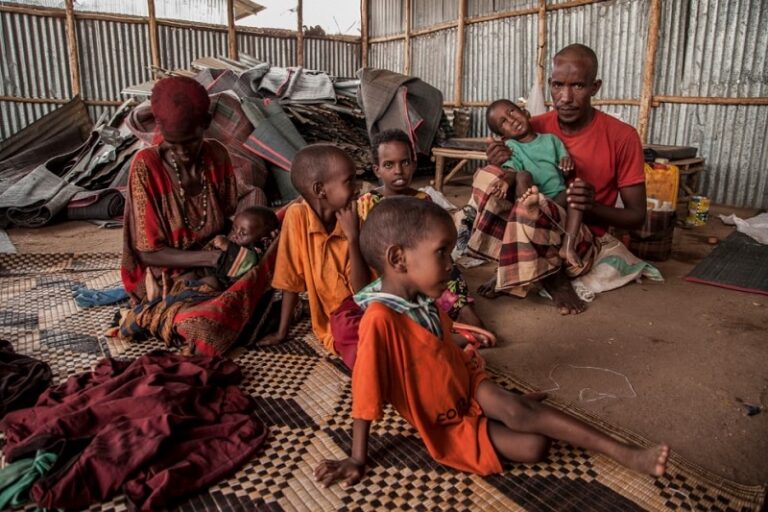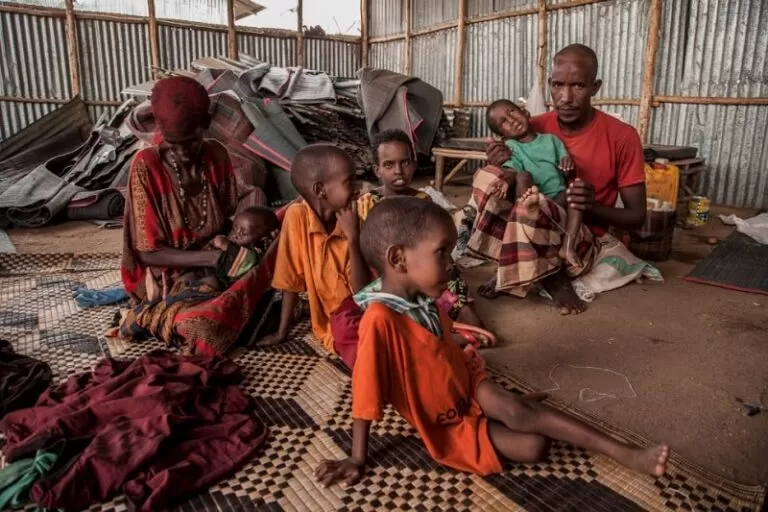

unhcr issues a humanitarian crisis alert for somaliland as thousands seek refuge in ethiopia
On Tuesday, the UN and the Ethiopian refugee agencies said that about 100,000 people had fled fighting in Somaliland, the self-declared independent region of Somalia, and taken refuge in a remote area of Ethiopia where there was already a severe drought. This has occurred in the span of one month. The UN High Commissioner for Refugees (UNHCR) says that since February 6, 98,000 people have arrived in three districts that border Somaliland. This estimate is based on information from the Doolo administrative zone, which is in the Somali region of Ethiopia and at the southeastern tip of the country, more than 1,300 kilometers away from Addis Ababa on a bad road.
Tesfahun Gobezay, director general of the Refugees and Returnees Service (RRS), an Ethiopian government agency, said at a press conference in Addis Ababa with Mamadou Dian Balde, UNHCR representative in Ethiopia, “We will corroborate these figures” with the registration that has started. The two were joined by Mamadou Dian Balde, who is the UNHCR representative in Ethiopia. “29,000 refugees have already been registered, and the numbers are increasing,” he said, adding that the refugees were “primarily women and children.” The most recent figures were made available on Monday.
The arrival of these refugees is expected to increase the population of the three woredas that are affected by the drought by approximately forty percent, which is equivalent to about 236,000 people. Already, these people are going through a lot of trouble because of the drought that is affecting their area and a larger part of the Horn of Africa.
Tesfahun recalled that in the region they had been dealing with a drought for the past four years. The region suffered from a lack of infrastructure as well as little socio-economic development. However, the people who lived there, who were “affected by the drought and various challenges,” were the first to help the refugees, even before our arrival; they welcomed them into their homes and shared what little food they had.
Shelter, food, water, and medical assistance are just some of the numerous and “quite urgent” needs that have been brought to light by Mr. Dian Balde, who emphasized that it is “very important that our support takes into account not only the refugees but also their hosts.” In addition, the refugees have reported to us that they “wish to return home.” They are not people who want to remain refugees. “They are therefore also calling for finding ways to solve the current problem (in Somaliland) so that people can return home,” he insisted. “They are not people who want to remain refugees.”
Somaliland used to be a British colony, but in 1991, when the rest of Somalia was falling into chaos from which it has not yet emerged, Somaliland declared its independence from Somalia on its own. In spite of the fact that it maintains its own institutions, Somaliland has never been granted official recognition of its independence by the international community.
Over the past few months, political tensions have been rising, which has led to fighting between Somaliland forces and militias from Puntland, which is next to Somaliland. Prior to that date, Somaliland had enjoyed a level of relative stability. The UNHCR says that before the Somaliland refugees came, Ethiopia was already home to more than 880,000 refugees. Ethiopia has about 120 million people living there. The majority of these refugees came from South Sudan, Somalia, Eritrea, and Sudan.
Also Read:- Top 10 most popular sports in South Africa in 2023
Two mobile telecom leaders, MTN Group and Airtel Africa, joined forces to create a new digital infrastructure system throughout African…
South African President Cyril Ramaphosa defended his nation against claims of white discrimination made by tech magnate Elon Musk. After…
Hilton launched Signia by Hilton for its first appearance in Egypt and Africa through its hotel expansions. These hotels at…
UNICEF reported that, nearly 2900 people died of cholera across Eastern and Southern African countries while children suffer most greatly…
Enza, based in the United Arab Emirates, obtained $6.75 million in initial investment funding from Algebra Ventures and Quona Capital.…
US Secretary of State Marco Rubio ordered South African Ambassador Ebrahim Rasool to leave America by March 21 because he…
This website uses cookies.